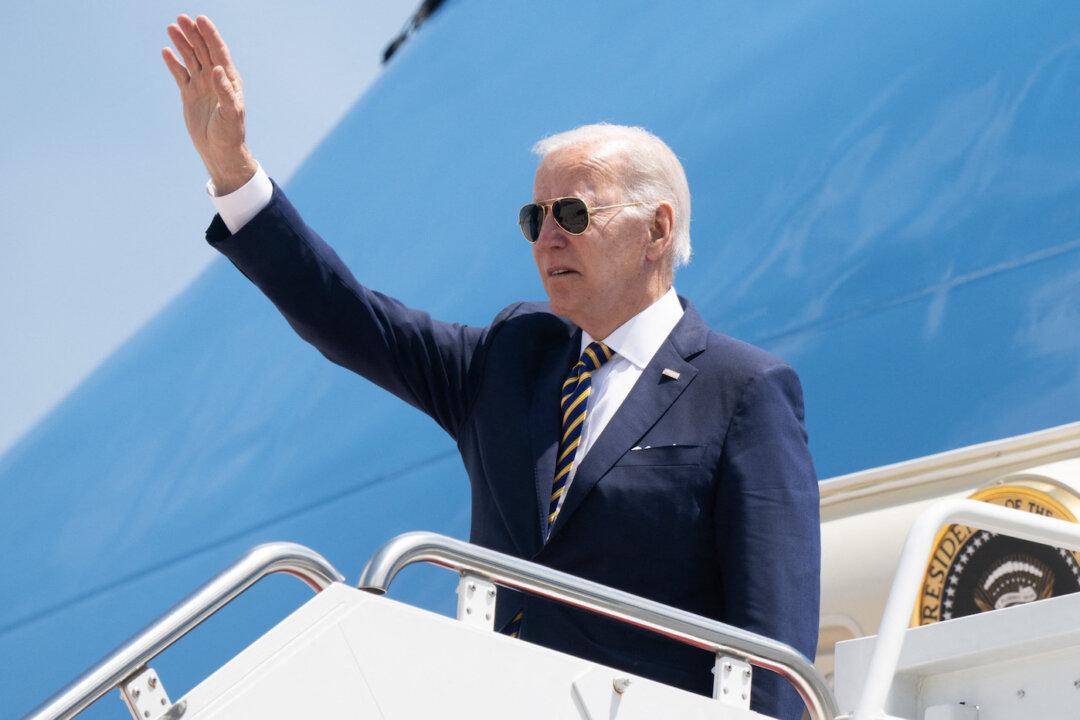China launched military drills in the contested South China Sea as U.S. President Joe Biden arrived in South Korea to meet with President Yoon Suk-yeol and promote his forthcoming economic plan for the region.
Biden is currently touring East Asia to develop better relations with the nation’s partners in the Indo-Pacific and drum up support for his Indo-Pacific Economic Framework, which he is expected to announce in Japan on May 23.




